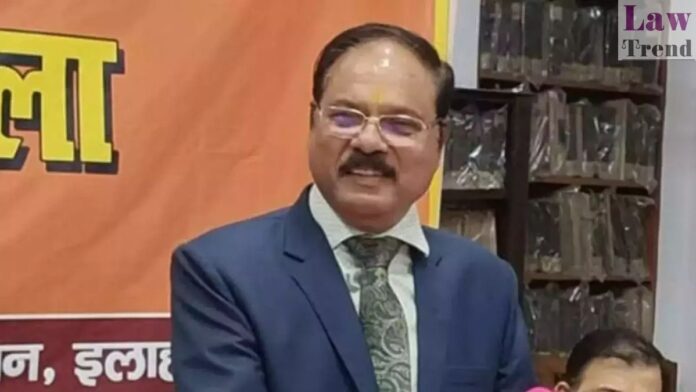In a significant development, the Supreme Court of India has taken note of the controversial remarks made by Justice Shekhar Kumar Yadav, a sitting judge of the Allahabad High Court, during an event organized by the Vishwa Hindu Parishad (VHP). The remarks, which have sparked nationwide debate, included statements supporting the implementation of a Uniform Civil Code (UCC) and assertions that India should be governed by the “wishes of the majority community.”
The Supreme Court issued an official statement, saying:
“The Supreme Court has taken note of the newspaper reports of a speech given by Mr Justice Shekhar Kumar Yadav, a sitting judge of the High Court of Judicature at Allahabad. The details and particulars have been called from the High Court and the matter is under consideration.”
What Sparked the Controversy
Justice Yadav, during his speech, criticized practices such as polygamy, triple talaq, and Halala, describing them as outdated and inconsistent with modern values. He lauded reforms in Hindu society, such as the abolition of Sati and child marriage, and urged similar changes across all communities. Justice Yadav also praised efforts by organizations like the Rashtriya Swayamsevak Sangh (RSS) in promoting the UCC.
However, his statement that “India will run as per the wishes of the majority community” has drawn significant backlash, with critics accusing him of undermining the secular principles enshrined in the Constitution.
The All India Lawyers Union (AILU) has strongly condemned Justice Yadav’s remarks, calling for disciplinary measures against him. In a letter signed by prominent legal figures, including AILU president Bikas Ranjan Bhattacharya, the union described the judge’s speech as a “direct affront to constitutional values” and raised concerns over judicial impartiality. They also called for a review of the Collegium system, suggesting a more robust mechanism for judicial appointments and accountability.
Political leaders have also criticized the remarks. Asaduddin Owaisi of the All India Majlis-e-Ittehadul Muslimeen (AIMIM) questioned the appropriateness of a sitting judge attending a VHP event, calling it a breach of judicial independence. Brinda Karat of the CPI(M) labeled the remarks as an “assault on the Constitution,” emphasizing that such biases erode public trust in the judiciary.




